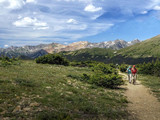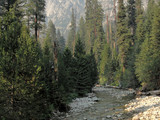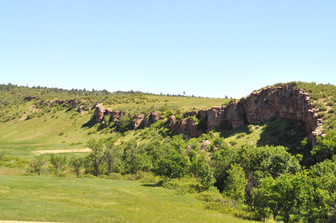Government Grants
Business Grants
Home Owner Programs
Federal Programs
About Us
Round 7 Outdoor Recreation Legacy Partnership Program
The LWCF State and Local Assistance Program was created by Congress in 1964 to assist in preserving, developing and assuring accessibility to present and future generations of U. S. citizens and visitors “such quality and quantity of outdoor recreation resources as may be available and are necessary
and desirable for individual active participation in such recreation and to strengthen the health and vitality of the citizens of the United States[.]" This is accomplished in part by authorizing and providing grants to states, and through states to local units of government and federally-recognized Indian tribes, for projects that will provide outdoor recreation opportunities to the public through the acquisition of lands and waters for parks and other outdoor recreation areas, as well as through the development of new, or the renovation of existing, outdoor recreation facilities.The LWCF State and Local Assistance program is operated by the National Park Service (NPS) in partnership with designated lead agencies in each of the 50 states as well as American Samoa, the District of Columbia, Guam, Northern Marianas Islands, Puerto Rico, and the Virgin Islands.
Congress allocates money from the LWCF for this program, which is then allocated to the states based on a legislative formula.
To be eligible for LWCF grants, states must maintain an approved Statewide Comprehensive Outdoor Recreation Plan (SCORP), which must be updated at least once every five years.
Among other things, SCORPs are used to assess the supply and demand for outdoor recreation resources and set priorities for the use of LWCF funds.
In 2014, in coordination with Congress and the Secretary of the Interior, NPS created the Outdoor Recreation Legacy Partnership (ORLP) Program, a competitive grant program administered under the authority of the LWCF Act.
NPS designed the ORLP with input from Congressional Committee staff, the States, and other interested parties.
As designed, the goal of the ORLP Program is to provide new or significantly improve recreation opportunities for disadvantaged communities in larger urbanized areas.
With Congressional support, the NPS has funded and issued grants pursuant to the ORLP each year.
ORLP grants are selected through an NPS-lead national competition following a solicitation and nomination by the States, and such grants do not count against State apportionments.
Congress allocates money from the LWCF for this program, which is then allocated to the states based on a legislative formula.
To be eligible for LWCF grants, states must maintain an approved Statewide Comprehensive Outdoor Recreation Plan (SCORP), which must be updated at least once every five years.
Among other things, SCORPs are used to assess the supply and demand for outdoor recreation resources and set priorities for the use of LWCF funds.
In 2014, in coordination with Congress and the Secretary of the Interior, NPS created the Outdoor Recreation Legacy Partnership (ORLP) Program, a competitive grant program administered under the authority of the LWCF Act.
NPS designed the ORLP with input from Congressional Committee staff, the States, and other interested parties.
As designed, the goal of the ORLP Program is to provide new or significantly improve recreation opportunities for disadvantaged communities in larger urbanized areas.
With Congressional support, the NPS has funded and issued grants pursuant to the ORLP each year.
ORLP grants are selected through an NPS-lead national competition following a solicitation and nomination by the States, and such grants do not count against State apportionments.
Obtain Full Opportunity Text:
http://grants.nih.gov/grants/guide/rfa-files/RFA-HL-12-026.html
Additional Information of Eligibility:
In accordance with 54 U.S.C.
200305(a), each state has a lead agency designated by the State’s Governor or by state legislation for the purposes of implementing LWCF in that state, and only the State Lead Agency can be an applicant for an LWCF grant.
Therefore, only the State Lead Agencies are eligible to submit applications for ORLP grants.
The State Lead Agency may submit on behalf of themselves or another eligible subrecipient.Applications submitted directly by entities other than the State Lead Agency for LWCF, will be eliminated without consideration.Eligible sub-recipients (aka project sponsors) includes state agencies, local units of governments and special purpose districts (must be an entity created by a legislative authority with a stated mission that includes acquiring, developing, owning and managing recreation areas and be able to demonstrate it can meet the perpetual protection requirement of the LWCF program), and federally-recognized Indian Tribes.An eligible sub-recipient must either be an incorporated city or town of at least 30,000 people as of the 2020 Census, or, if the subrecipient is a county or special purpose district, the project must be serving an incorporated city or town of at least 30,000 or more people.
The park or recreation area and the disadvantaged community(ies) must all be within the city or town.Parks/sites that are currently receiving an LWCF formula grant, or that received an LWCF formula grant that closed within the last seven years (even if the scope of the project is different) and, parks/sites that received more than one previous ORLP award are not eligible.
Full Opportunity Web Address:
http://grants.nih.gov/grants/guide/rfa-files/RFA-HL-12-026.html
Contact:
Agency Email Description:
susan_broeksmit@nps.gov
Agency Email:
Date Posted:
2023-11-07
Application Due Date:
Archive Date:
2024-05-28
Social Entrepreneurship
Spotlight
Colombian Social Entrepreneur Hopes to Shake and Change the World

Young at 24, Juan David Aristizabal Ospina is a social entrepreneur who founded Buena Nota, a platform that accentuates social entrepreneurs and citizens in Colombia making positive changes and raising awareness about social problems that need to be addressed.





